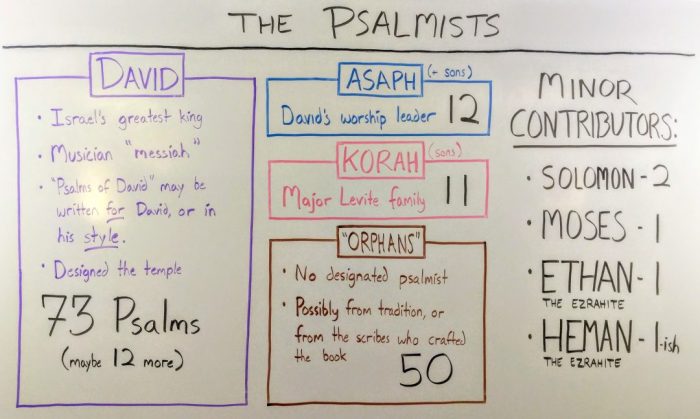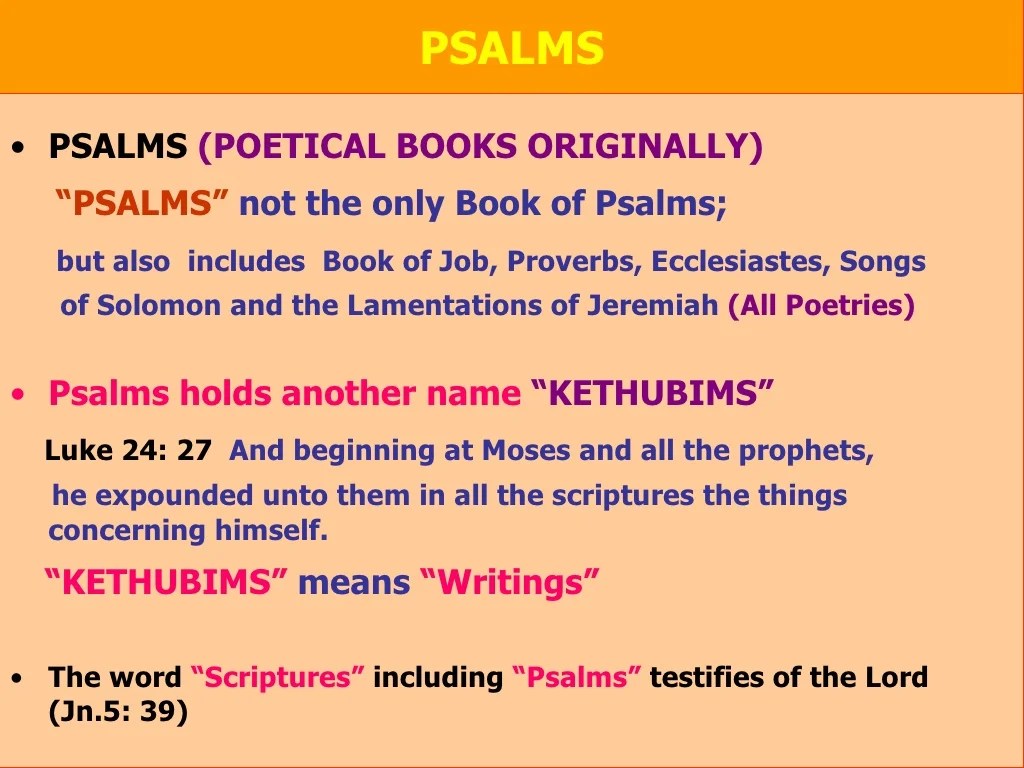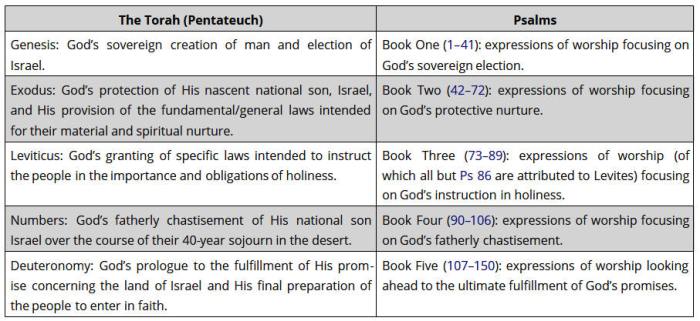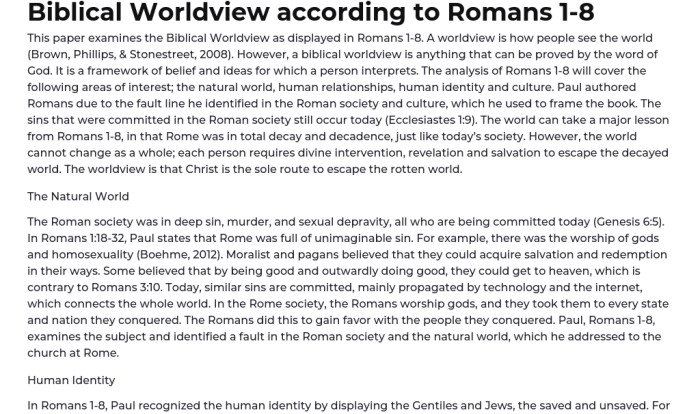The list of individuals who composed material in the Psalms offers a fascinating glimpse into the diverse voices that contributed to this timeless collection of sacred songs. From King David to the sons of Korah, each author played a unique role in shaping the content and message of the Psalms.
This rich tapestry of authorship reflects the multifaceted nature of the Psalms, which encompass a wide range of emotions, experiences, and theological perspectives. By examining the contributions of these individuals, we gain a deeper understanding of the origins and significance of this beloved biblical book.
1. The Contributors to the Psalms: The List Of Individuals Who Composed Material In The Psalms

The Psalms are a collection of religious songs and poems that were used in the worship of ancient Israel. The Psalms were written by a variety of individuals, including:
- David, the king of Israel
- Asaph, a Levite musician
- The sons of Korah, a group of Levite musicians
- Heman, a wise man
- Ethan, a wise man
- Moses, the leader of Israel
- Solomon, the king of Israel
These individuals played different roles in the creation of the Psalms. Some of them wrote the lyrics of the Psalms, while others composed the music. Some of them performed the Psalms in the temple, while others taught the Psalms to the people.
2. The Process of Psalm Composition
The Psalms were composed through a variety of methods. Some of the Psalms were written as spontaneous prayers or songs of praise. Others were composed as hymns or liturgical songs for use in the temple worship. Some of the Psalms were written as didactic poems, intended to teach the people about God and his ways.
The process of Psalm composition was often collaborative. The author of a Psalm would often work with a musician to create the music for the Psalm. The Psalm would then be performed by a choir or group of musicians in the temple.
3. The Literary Structure of the Psalms

The Psalms are a diverse collection of poems, with a wide range of literary styles and forms. Some of the Psalms are simple songs of praise, while others are complex and sophisticated poems. The Psalms can be divided into several different types, including:
- Hymns of praise
- Lamentations
- Songs of thanksgiving
- Songs of wisdom
- Prophecies
The literary structure of the Psalms contributes to their meaning and impact. The Psalms are often written in a parallelistic style, in which the second line of a verse repeats or complements the first line. This style of writing creates a sense of balance and symmetry, which is appropriate for songs that are intended to be sung or recited.
4. The Theological Themes of the Psalms

The Psalms are a rich source of theological reflection. The Psalms cover a wide range of topics, including:
- The nature of God
- The relationship between God and his people
- The problem of evil
- The hope for salvation
The Psalms offer a unique perspective on these topics, as they are written from the perspective of people who are struggling with the challenges of life. The Psalms are a source of comfort and hope for those who are suffering, and they offer a glimpse of the beauty and majesty of God.
5. The Historical Context of the Psalms

The Psalms were written over a period of several centuries, from the time of Moses to the time of the Babylonian exile. The Psalms reflect the historical experiences of the people of Israel, including their joys and sorrows, their victories and defeats.
The Psalms are a valuable source of information about the history of ancient Israel. They provide insights into the religious beliefs and practices of the people of Israel, and they offer a glimpse of the social and political conditions of the time.
Frequently Asked Questions
Who was the primary author of the Psalms?
King David is traditionally credited with composing the majority of the Psalms, with approximately 73 psalms attributed to him.
What was the role of the sons of Korah in the Psalms?
The sons of Korah were a group of musicians and singers who played a significant role in the Temple worship. Eleven Psalms are attributed to them.
How did the historical context influence the Psalms?
The Psalms reflect the political, social, and religious events of ancient Israel, providing insights into the challenges and triumphs of the people of God.
